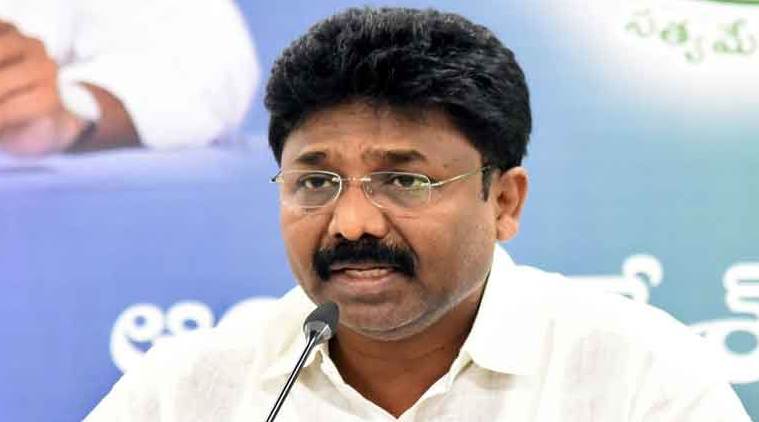 Andhra pradesh Education Minister Audimulapu Suresh
Andhra pradesh Education Minister Audimulapu Suresh
With Andhra Pradesh planning to reopen its schools in September, state Education Minister Audimulapu Suresh speaks to Sreenivas Janyala about the bridge courses his government has introduced to make up for the three academic months lost due to the lockdown. Excerpts:
Is Andhra Pradesh planning to reopen schools from September 5?
We are assuming that by the end of this month or by early next month, ‘Unlock 4’ will be announced and schools would be allowed to reopen. The state government’s assessment is that the number of Covid-19 cases will peak in August and by next month, the curve will flatten. Based on this we are planning to reopen all 45,000 government and the 15,000-odd private schools.
Our aim is to ensure that students do not lose an academic year or are kept away from education. In fact, apart from conducting online classes, we have introduced bridge courses to make up for the three months and prevent students from dropping out.
To those students who do not have access to TV or the Internet, we are already taking the school to the doorsteps with `Vidya Varadhi’—mobile school vans. These vans were launched on July 31 and they will go into the interior villages and show videos on giant screens of classes of all subjects to students who will gather at a particular place. About 18 lakh students who do not have access to online classes will benefit from these mobile school vans. This is to prepare them to return to school next month.
The bridge course textbooks have been provided to students by their respective schools and are taught through Doordarshan. We started `Vidyamrutham’ — video classes broadcast through Doordarshan — for Class 10 students on April 8, which are conducted every day for two hours. Vidyakalasham is a radio programme to acquaint students with the subjects and courses of this academic year. We have created WhatsApp groups and Facebook live pages also to give lessons.
What are the protocols in place for the safety of students and teachers?
All students, teachers and school staff have to wear masks, use hand sanitizers frequently, and maintain physical distancing. At the individual school level, it can be decided whether to make students sit in zigzag patterns or on alternate benches. If in some schools, the number of students is more and physical distancing is difficult, then we may ask those schools to conduct classes in shifts. Each school has to adapt based on their need. Teachers and staff will also look out for any students who may be sick or ill. Parents visiting the schools also have to follow Covid-19 protocols.
How will the loss of three to four academic months be covered?
We have redesigned and reoriented the syllabus without sacrificing much of the content. We have shortened it a little for the 2020-21 academic year for all classes. We have lost valuable time, but teachers will quickly take the students through what they have learnt through online classes and then start the regular classes. We are also introducing teaching in English in all classes so we printed multilingual textbooks — there will be text in English and Telugu side by side. Hopefully, the bridge courses and online classes have covered some portions and students are ready to pick up quickly.
As part of education reforms, we are introducing activity-based learning rather than just memorising. Teachers will use a tool called BALA—Building as Learning Activity—which will use pictures of a building to explain maths or physics. For example, 45 degrees will be explained with a picture of a door or window opened at that angle. Small stories or anecdotes will be included in the text to explain something.
The new curriculum is more informative and sophisticated. In the coming months, there will be a lot of emphasis on digital education too and we will be working on ways and means to involve all the students. Despite the challenges that Covid-19 is posing, we want to make learning joyful for the students.
To bring in more responsibility and add significance to the post, the district education officer will from now on be joint director (education). There is a proposal to make the district joint collector as overall in-charge of education in the district.
Andhra Pradesh had started repairing and revamping infrastructure of education institutions. What is the progress?
The government launched the ambitious ‘Nedu Nadu’ programme to improve school infrastructure. All 45,000-odd government schools would be provided basic amenities like furniture in all classes, separate toilets for girls and boys with running water, a compound wall around the school, renovation of existing classrooms and building new ones where necessary, and setting up parent committees in all schools which will be responsible for ensuring that the schools are running properly.
In the first phase, 15,715 schools are being covered with a budget of Rs 3,600 crores. About 70 per cent of the schools have already been renovated and revamped. The remaining will be completed by August 31.
In three years, we will renovate all the government educational institutions at a cost of Rs 12,000 crores